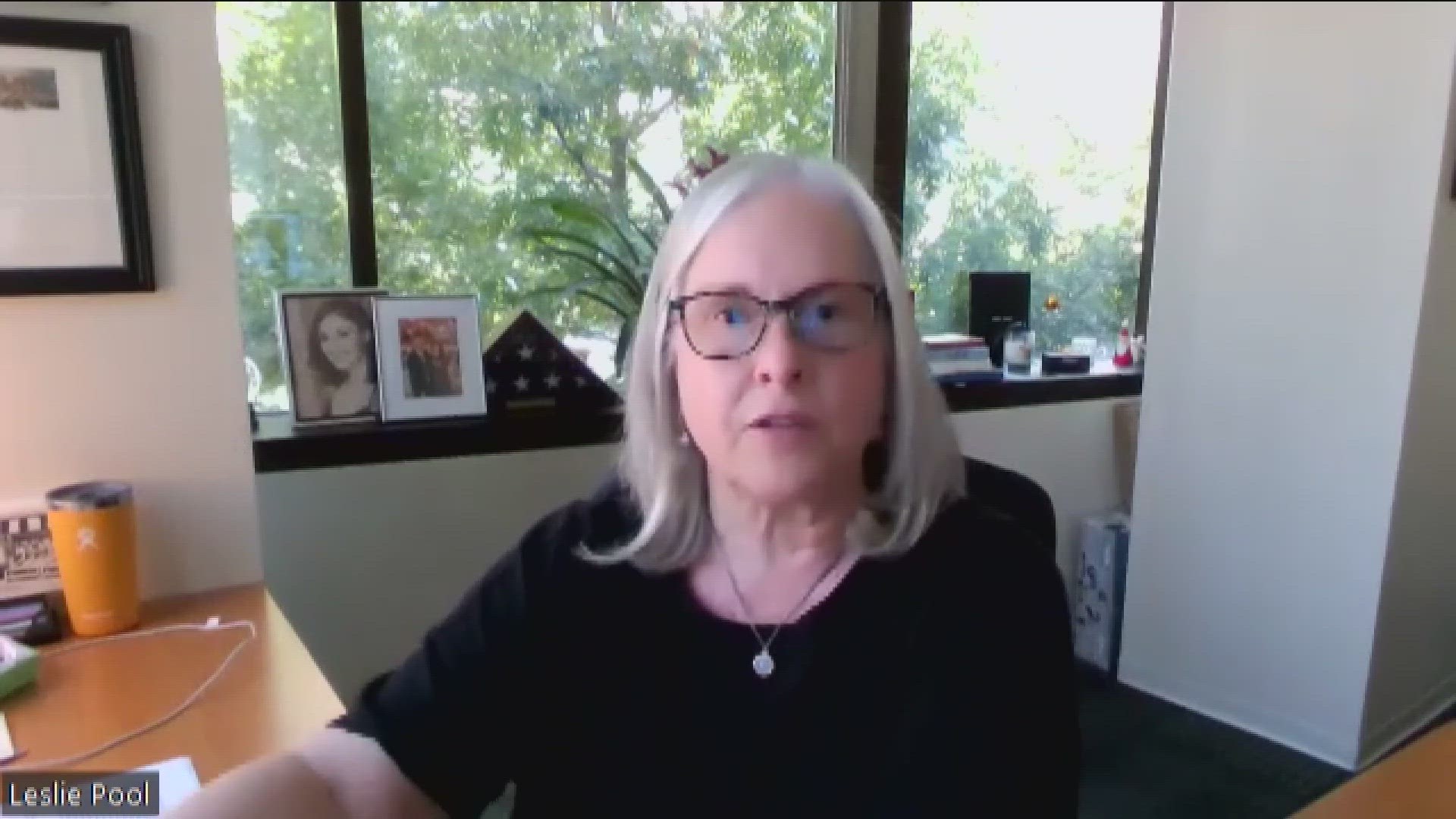AUSTIN, Texas — A new land development resolution on the Austin City Council's agenda has rumors swirling on social media, and Councilmember Leslie Pool (District 7) is setting the record straight.
"We are not changing single-family zoning into multifamily zoning, and we will have a notification on all of this information," Pool said.
To help address Austin's affordability challenge, the Austin City Council is set to discuss item 126 at its meeting on Thursday.
The resolution would reduce the minimum lot size in single-family zoning districts from 5,570 square feet to 2,500 square feet or less so that existing standard-size lots can be subdivided and be developed with a variety of housing types such as row houses, townhomes, tri- and four-plexes, garden homes and cottage courts.
It would also amend the maximum number of housing units to allow at least three units per lot in single-family zoning districts without requiring existing structures to be preserved.
Pool said it would also cut building fees for homeowners. She said the goal is to help the middle class afford to live in Austin.
"It preserves the neighborhood," Pool said. 'It means that someone who is being priced out and is struggling can potentially stay because they have found a way to make some money on their property by subdividing it. They might choose to hold on to it, build on it and then rent, thereby getting all of that income."
Pool said this incremental densification would help school attendance numbers and ensure middle-class benefits instead of developers and investors.
"So again, this doesn't benefit the developers," Pool said. "They still have to go through the process, and if you are building a big house like under the McMansion ordinance, this also does not change anything about those requirements."
The resolution states, "Many peer cities, such as San Diego, Philadelphia and San Antonio offer a range of more modest lot sizes to enable families of all incomes to participate in home ownership. The City Council recognizes the city's housing affordability challenges. Smaller lot sizes encourage compact development and can optimize the use of existing infrastructure such as roads, water supply and sewage systems, minimize resource consumption and associated environmental impacts through smaller structures, and allow clustered developments that preserve more tree canopy and environmental features."
Unlike Pool, former Travis County Judge Bill Aleshire does not believe the plan would preserve neighborhoods.
"They bought their homes because they thought they knew what would be next door," Aleshire said. "Yeah, they're going find out they're going to have four times as many people and cars and noise and so forth next door to them. That's messing with people's homes."
Aleshire said the City could face lawsuits because most home deeds have a one- to two-home-per-lot limit.
"Single-family neighborhoods will not exist; they don't want them to exist," Aleshire said. "Where this is headed is trying to bulldoze their way into making Project Connect and the rail plan work."
Pool said the homes built will be affordable for families that are considered middle class in Austin – those who earn an income of $60,000 to $150,000.
Pool said Thursday's discussion will simply get the conversation going, and she wants feedback from experts and the community.
"I'm also asking the staff to let us know when they come across unintended consequences that are negative," Pool said. "And so, with the thinking that if we see that things aren't going the right direction, then we pull back and tweak them and adjust before we get too far down the road."
She hopes to get this done before her term ends in 2025.
Public comment will be open during Thursday's city council meeting, but you must sign up beforehand. You can also set up a meeting or email Pool to voice your concerns.
Boomtown is KVUE's series covering the explosive growth in Central Texas. For more Boomtown stories, head to KVUE.com/Boomtown.

